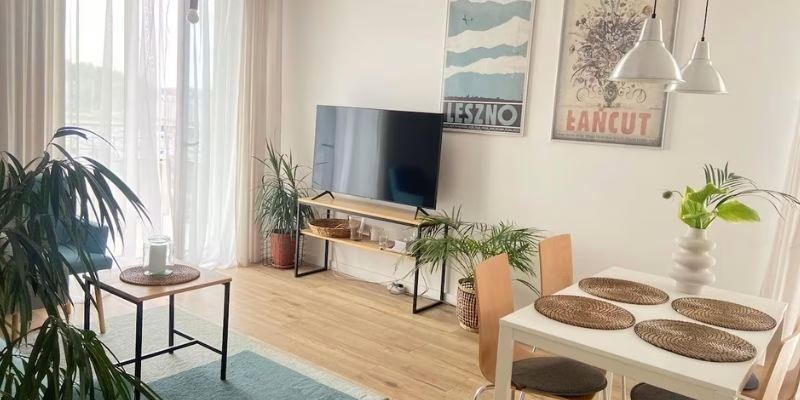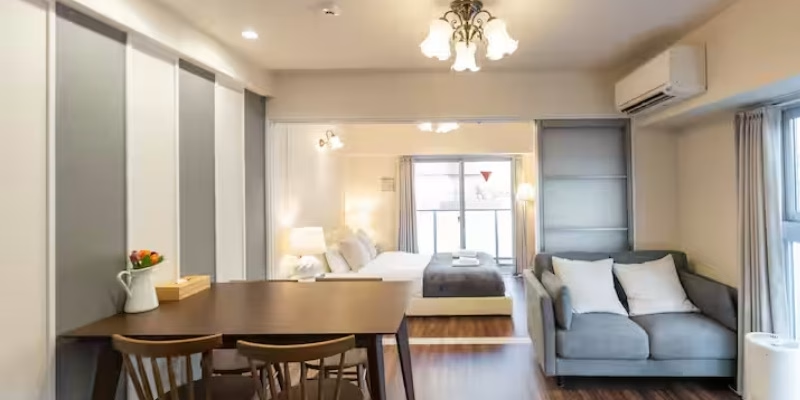Securing long-term housing in Tokyo often presents formidable challenges due to traditional Japanese contract protocols and language barriers. This professional framework provides a detailed guide for international residents. It helps those seeking foreigner-friendly apartments in Tokyo. The focus is on the specialized “Apartment no Japanese language required” model. We offer clear steps to simplify the process of finding your ideal apartment. These steps ensure you can do so with total confidence and efficiency.
What is “Apartment No Japanese Language Required”?
Opting for foreigner-friendly listings in Tokyo fundamentally transforms the tenant experience. It makes the search for an apartment for rent Tokyo foreigner significantly simpler. This process is also faster. These advantages are measurable and address historical hurdles faced by non-Japanese residents.
Bilingual Contract Management and Comprehensive Support
The provision of English-language lease agreements and full-service support is the cornerstone of the “Apartment no Japanese language required” model.
- Contract Clarity: This eliminates miscommunication about crucial contract terms. It also addresses property regulations and tenant obligations. These are notoriously specific under Japanese tenancy laws.
- Legal Transparency: Having a contract reviewed in your native language is essential. This process helps you understand clauses related to lease termination, repair responsibilities, and key house rules. Understanding these clauses prevents potential disputes.
Streamlined Guarantor Solutions
Historically, the requirement for a personal Japanese guarantor was the single greatest obstacle for non-residents.
- Replacement of Personal Sponsors: Reputable foreigner-friendly properties now readily accept professional guarantee companies (hoshō gaisha).
- Cost Structure: These firms charge a non-refundable fee, typically ranging from $50\%$ to $100\%$ of one month’s rent.
- Efficiency: The guarantee company’s endorsement satisfies the landlord’s financial security requirements quickly and efficiently, accelerating the application review process.
Simplified Initial Costs and Financial Relief
Many properties catering to expatriates streamline the expensive initial payment structure, providing immediate financial relief. Landlords are increasingly reducing or eliminating traditional fees.
| Fee Type | Conventional Apartment (Common) | Foreigner-Friendly Option | Financial Impact |
| Key Money (Reikin) | 1-2 Months’ Rent | 0 (Commonly eliminated) | Substantial saving on non-refundable fees. |
| Deposit (Shikikin) | 1-2 Months’ Rent | 1 Month’s Rent (Common) | Reduced capital requirement upfront. |
By removing the non-refundable Key Money (Reikin), the upfront cash requirement is substantially reduced. For example, an apartment costing ¥150,000/$month requires 3-4 months’ rent upfront. This amounts to ¥450,000 – ¥600,000. The expat-friendly option includes 0 Reikin and 1 Shikikin. This is in contrast to the conventional structure, which requires 6 months’ rent, approximately ¥900,000.

Essential Steps to Rent Apartment Tokyo Foreigner
The process to rent apartment Tokyo foreigner is highly structured and requires meticulous preparation. Understanding the specific documentation and vetting expected by Japanese property managers is critical for a successful, timely approval.
Pre-Application Requirements and Documentation Checklist
Having these materials prepared streamlines the application review process, which assesses the stability of your residential status and financial background:
- Residence Card (Zairyū Card): Mandatory proof of legal residency. The card must display a remaining visa validity of at least six months for a standard two-year contract.
- Proof of Income and Employment: Verification of financial stability is essential.
- Employees: Employment contract and three recent pay slips. Landlords typically require the tenant’s income to be at least three times the monthly rent.
- Students: Certificate of enrollment and evidence of financial sponsorship or bank funds.
- Freelance/Entrepreneur: They are often asked to provide tax returns from their home country. Alternatively, six months of detailed Japanese bank statements may be required to verify income stability.
- Japanese Bank Account Details: A local bank account is the standard, mandatory method for recurring rent payments.
- Emergency Contact: Information for an individual in Japan (strictly for emergency contact, not financial guarantee).
Decoding Initial Move-In Costs
Understanding the breakdown of initial costs is paramount. Some fees are mandatory. However, the existence of Key Money (Reikin) and Deposit (Shikikin) varies significantly. The landlord or management company designates the property as “foreigner-friendly.”
| Fee Type | Purpose | Typical Amount | Refundable Status |
| Deposit (Shikikin) | Security against damages and unpaid rent. | 1-2 Months’ Rent | Partially/Fully Refundable |
| Key Money (Reikin) | Non-refundable gift to the landlord. | 0-2 Months’ Rent | Non-Refundable |
| Agency Fee | Commission for the real estate agent. | 1 Month’s Rent + Consumption Tax | Non-Refundable |
| Guarantor Company Fee | Cost for the third-party financial guarantee. | 50%-100% of 1 Month’s Rent | Non-Refundable |
| First Month’s Rent | Rent payment for the first month. | 1 Month’s Rent | Not Applicable |
| Fire Insurance | Mandatory insurance coverage. | Approx. ¥15,000 – ¥20,000 | Non-Refundable |
Tenants should budget for an equivalent of 4 to 6 months’ rent. This will cover all initial costs for a typical apartment. An agency specializing in “Zero-Zero” (zero deposit, zero key money) properties may offer an alternative.
The Specialized Three-Stage Application Vetting Process
The system structures the process around three critical vetting stages once the application is submitted. The initial steps involve crucial pre-screening by the real estate agent to manage expectations and avoid rejection.
Initial Pre-Screening (Prior to Application Submission)
When searching for a property, the professional agent (like Arealty) must first confirm the landlord’s acceptance criteria, which includes specific questions to filter listings:
- Foreigner Acceptance Check: The agent confirms whether the property is open to foreign tenants.
- Specific Requirements Inquiry: If accepted, they will inquire about specific details. They will ask, “what is your nationality”, “what is your visa status”, and “how well can you speak Japanese”. This pre-screening is vital to direct the applicant only toward properties where their profile is likely to be accepted. It helps to circumvent immediate rejection due to nationality or perceived language barriers.
The Guarantor company check
- Primary Objective: Financial verification and solvency assessment.
- Procedure: The guarantee company will typically make a phone call to verify income. This involves calling the applicant and/or their workplace. They perform a “money check” to ensure the tenant has sufficient ability to pay the rent consistently.
The property management company check
- Primary Objective: Evaluation of contract manageability, rule compliance, and overall risk.
- Procedure and Language Barrier: This stage involves the greatest variability:
- Traditional Requirement: Some companies require the customer to speak Japanese to ensure smooth communication and issue resolution throughout the tenancy.
- “No Japanese” Model: Other companies do not require the customer to speak Japanese because they have dedicated bilingual support systems. To secure an Apartment without needing Japanese, it is essential to choose a specialized agency. This agency should work exclusively with these management companies.
The landlord’s final decision
- Primary Objective: Final approval based on risk assessment.
- Procedure: The landlord reviews whether the two preceding stages (Guarantor and Management Company) were cleared before making the final decision.
- Contact: The landlord usually does not call the tenant directly, relying solely on the reports from the management company.

Post-Contract Logistics and Life in Tokyo
Securing the lease is only the first phase. The successful transition into an Apartment no Japanese language required requires managing several critical logistical steps. You must handle these immediately after contract signing.
Essential Utility Setup (Electricity, Gas, Water)
Japanese landlords do not manage utility connections; this responsibility falls entirely to the tenant. Specialized agencies often provide multilingual support for these tasks:
- Electricity: Requires a simple phone call or online application to the local provider (e.g., TEPCO). Typically activated fast on the move-in day.
Understanding Japanese Tenancy Rules and Community Conduct
Japanese rental contracts impose strict rules concerning property usage and neighbor relations. Adherence is crucial to maintaining tenancy:
- Noise Management: Strict rules govern noise levels, particularly after 10 PM. This includes heavy furniture movement, use of loud appliances (washing machines, vacuums) late at night or early morning.
- Waste Management: Tenants must meticulously follow the local ward’s highly detailed trash separation and collection schedules.
- Pets and Occupants: Most contracts prohibit pets and specify the exact number of occupants permitted.
- No Smoking Policy: Most modern apartment buildings enforce a strict no-smoking policy. This often extends to balconies and common areas.

Arealty: Your Dedicated Partner for an Apartment No Japanese Language Required
Choosing the correct real estate professional is the most decisive factor in successfully securing an Apartment no Japanese language required. Arealty specializes in simplifying the rent apartment Tokyo foreigner process, providing a full-service experience designed specifically for the international community.
Arealty’s Commitment to International Clients:
- Exclusive Vetted Inventory: Arealty maintains a current database of properties. The landlords and management of these properties have explicitly agreed to simplified contract terms. They also agreed to English-language communication.
- Complex Application Management: The agency specializes in handling complex applications (e.g., entrepreneurs, non-standard work visas). Arealty uses specialized guarantor companies and presents detailed financial projections. This approach allows Arealty to secure approvals. Local, non-specialized agencies would simply reject the applicant due to perceived risk.
- Full-Service Onboarding: The agency’s services extend to critical post-contract logistics. These include utility and internet setup. This ensures a seamless transition into the new residence.
Conclusion
The pursuit of an apartment for rent in Japan is fundamentally redefined by the “Apartment no Japanese language required” model. This niche guarantees transparent housing and professional support throughout the tenancy. By partnering with specialists like Arealty, international residents secure high-quality apartments in Tokyo, Japan. They do this confidently and efficiently. This makes their relocation a guaranteed success.
Do not allow the language barrier to complicate your move. Contact Arealty today to book a free 30-minute consultation with an English-speaking agent. You will immediately access the most current listings for your ideal Apartment no Japanese language required in Tokyo. Secure your new home with professional confidence.





Leave a Reply